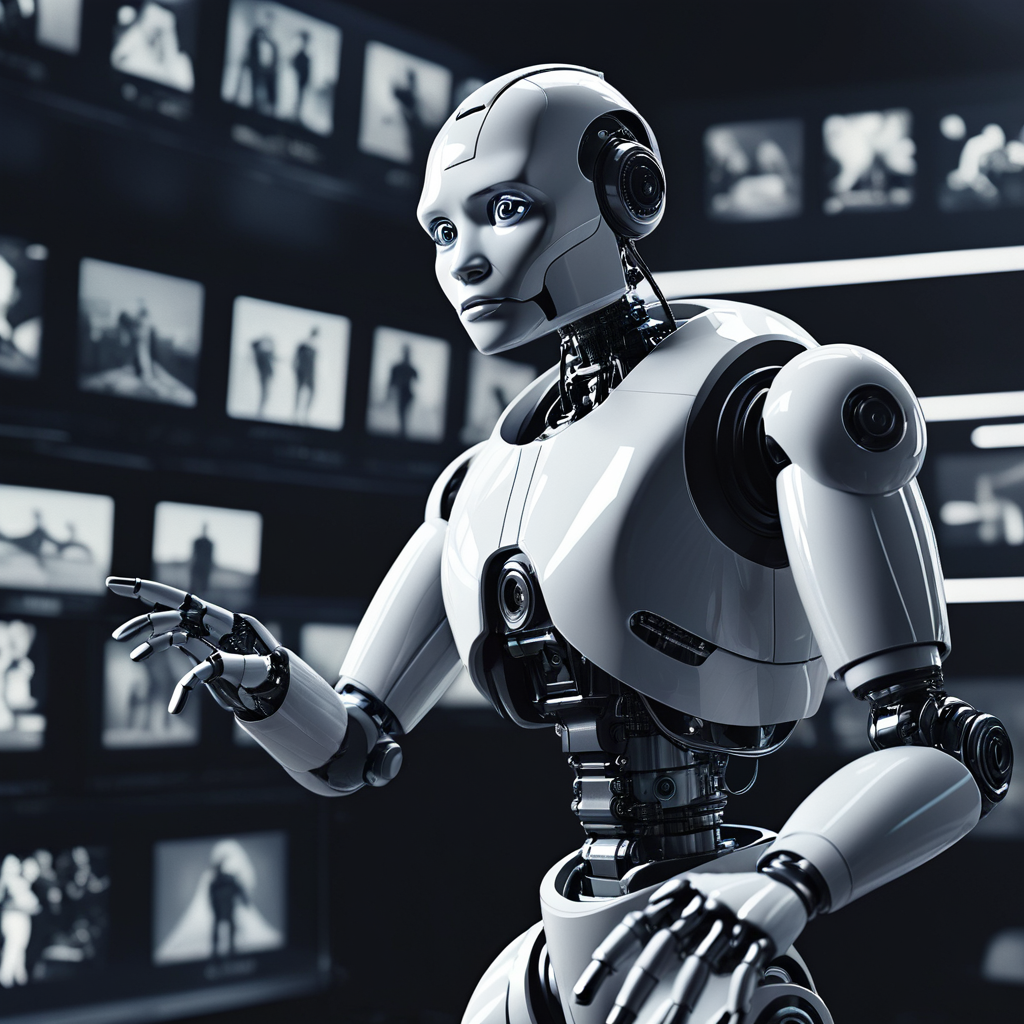

The movie industry has undergone a remarkable transformation in recent years, owing much of its progress to advancements in artificial intelligence (AI) and machine learning (ML). From movie production and distribution to content generation, AI and ML have revolutionized various aspects of filmmaking, offering innovative solutions, improving efficiency, and enhancing creativity. This essay explores the profound impact of AI and ML in the movie industry, examining their roles in movie making, distribution, and content generation.
I. AI and Machine Learning in Movie Production
- Scriptwriting and Storytelling
AI-driven tools have begun to play a significant role in scriptwriting and storytelling. These systems analyze vast datasets of scripts, movies, and literary works to identify trends, plot structures, and character development. They can generate story ideas, assist in script analysis, and even predict audience reactions based on historical data. For instance, ScriptBook is an AI system that evaluates scripts and provides insights into their commercial viability.
- Previsualization and Storyboarding
AI and ML technologies facilitate previsualization and storyboarding, helping filmmakers visualize scenes and sequences before shooting begins. Software like FrameForge and Plotagon employs AI algorithms to create animated storyboards, providing directors and production teams with a clearer vision of their projects.
- Casting and Character Development
Machine learning algorithms can assist in casting decisions by analyzing actors’ previous performances and their compatibility with specific roles. AI can also generate character traits and backstories, adding depth to the storytelling process. For example, IBM’s Watson helped cast the role of Margot Robbie’s AI character in the movie “Terminal.”
- Location Scouting
AI-powered tools streamline location scouting by analyzing parameters like weather, lighting, and accessibility. These systems can suggest suitable filming locations based on desired criteria, saving time and resources for production teams.
- Post-production and Special Effects
AI has revolutionized post-production processes, particularly in the realm of visual effects (VFX). Deep learning techniques, such as neural networks and generative adversarial networks (GANs), enhance the creation of realistic CGI characters, environments, and effects. ML-driven software can also automate tasks like color correction, audio processing, and video editing, reducing manual labor and production costs.
II. AI and Machine Learning in Movie Distribution
- Targeted Marketing and Advertising
AI-powered analytics enable studios to identify their target audience more accurately. By analyzing data from social media, streaming platforms, and online behaviors, marketers can create personalized marketing campaigns and trailers tailored to specific viewer preferences. This approach maximizes the chances of a movie’s success and minimizes marketing expenses.
- Predictive Analytics
Predictive analytics powered by machine learning models help studios forecast a movie’s box office performance. These models analyze historical data, market trends, and various factors to estimate a movie’s potential revenue, guiding distribution strategies and release schedules.
- Recommendation Systems
Streaming platforms like Netflix and Amazon Prime leverage AI-driven recommendation systems to suggest movies and TV shows to viewers. These systems analyze user viewing history, preferences, and behaviors to curate personalized content, enhancing user engagement and retention.
- Anti-Piracy Measures
AI is also used to combat piracy in the movie industry. Machine learning algorithms can detect copyright infringements by scanning the internet for unauthorized distribution of movies. They can flag and report illegal copies, helping studios protect their intellectual property.
- Pricing and Revenue Optimization
AI helps studios optimize pricing strategies for various distribution channels, such as theatrical releases, streaming platforms, and home video. Machine learning algorithms analyze market conditions, competitor pricing, and historical data to determine the ideal pricing structure for maximizing revenue.
III. AI and Machine Learning in Content Generation
- Trailer Creation
AI and ML are increasingly used to create movie trailers. These systems analyze the entire film, selecting scenes, dialogue, and music that are likely to capture the audience’s attention. By automating trailer production, studios can save time and resources.
- Subtitling and Localization
AI-driven translation and subtitling tools have improved the accessibility of movies for global audiences. These systems can quickly translate dialogue and captions into multiple languages, ensuring a broader reach and greater cultural relevance.
- Script and Screenplay Generation
AI can assist screenwriters by generating dialogue, scenes, and even entire scripts based on specific themes or genres. While these AI-generated scripts may not replace human creativity, they can serve as a valuable source of inspiration.
- Content Enhancement
AI-powered tools enhance existing content by upscaling video quality, removing noise, and improving audio quality. This is particularly beneficial for restoring and remastering classic films for modern audiences.
- Virtual Production and Animation
AI and ML technologies are instrumental in virtual production and animation. Real-time rendering engines powered by AI enable filmmakers to create complex scenes and environments on the fly, reducing the need for physical sets. Additionally, AI-driven animation tools can generate lifelike character movements and expressions.
Conclusion
The integration of AI and machine learning into the movie industry has transformed the way films are made, distributed, and even generated. From scriptwriting and previsualization to targeted marketing and content enhancement, AI and ML have significantly enhanced efficiency, creativity, and audience engagement. As technology continues to advance, the movie industry will continue to evolve, embracing AI and ML as essential tools in the filmmaking process. While these technologies offer immense benefits, it is essential to strike a balance between automation and human creativity, ensuring that AI and ML serve as valuable aids to filmmakers rather than replacing their artistic vision. Ultimately, the synergy between human ingenuity and AI innovation promises to shape the future of cinema in exciting and unexpected ways.
